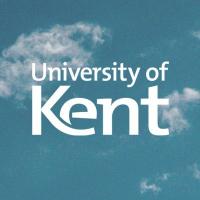Linguistics - PhD
A PhD in Linguistics enables you to undertake a substantial piece of supervised research in the subject that makes an original contribution to knowledge and is worthy of publication.
Overview
A PhD, also known as a doctorate, is a requirement for a career as an academic or researcher. In addition, it has become a qualification valued by many employers who recognise the skills and commitment a PhD requires. Employers also recognise that a PhD indicates excellent research capabilities, discipline and communication skills.
Over the duration of the PhD, you produce an original piece of research of up to 100,000 words.
Current PhD projects include: ‘Prosody of Language and Music’, ‘Mapping the Musical Rhythms of Autistic Speech’, ‘Arpitan: A Study of An Emerging Linguistic Variety’, ‘It's A Funny Old World: The Construction of Possible Worlds in Jokes and Stand-up Comedy’ and ‘Investigating and Defining Urdu Phonology and its Role and Use in L2 (English) Perception and Production’.
The Department of English Language and Linguistics offers supervision from world-class academics with expertise in a wide range of disciplines, able to support and guide you through your research. Your progress is carefully monitored to ensure that you are on track to produce a thesis that is valued by the academic community. Throughout your programme, you are able to attend and contribute to research seminars, workshops, and research and transferable skills training courses.
You may be eligible for a fully-funded PhD scholarship to support your studies with us. The PhD in Linguistics at Kent can be funded through the South East Network for Social Sciences (SeNSS) Doctoral Training Centre, or through the Consortium for the Humanities and the Arts South-East England (CHASE) collaborative doctoral partnerships. Please indicate in your application if you want to be considered for any of these programmes, and explain your eligibility for the chosen scheme. For the full list of scholarships available within the School, please see our postgraduate scholarship page.
Campus Information
Canterbury
Our campus is surrounded by beautiful woodlands and overlooks the charming city of Canterbury. We have excellent transport links on campus or you can stroll into town on foot.
Intakes
- Jan
- May
- Sep
Application Processing Time in Days: 30
Minimum English Language Requirements
| English Level Description | IELTS (1.0 -9.0) | TOEFL IBT (0-120) | TOEFL CBT (0-300) | PTE (10-90) | |
|---|---|---|---|---|---|
| Expert | 9 | 120 | 297-300 | 86-90 | |
| Very Good | 8.5 | 115-119 | 280-293 | 83-86 | |
| Very Good | 8 | 110-114 | 270-280 | 79-83 | |
| Good | 7.5 | 102-109 | 253-267 | 73-79 | |
| Good | 7 | 94-101 | 240-253 | 65-73 | |
| Competent | 6.5 | 79-93 | 213-233 | 58-65 | |
| Competent | 6 | 60-78 | 170-210 | 50-58 | |
| Modest | 5.5 | 46-59 | 133-210 | 43-50 | |
| Modest | 5 | 35-45 | 107-133 | 36-43 | |
| Limited | 4 | 32-34 | 97-103 | 30-36 | |
| Extremely Limited | < 4 | < 31 | < 93 | < 30 |
Job Opportunity Potential
In these appointments, you will have up to 45 minutes to talk to a careers adviser about whatever career-related topic is important to you. Topics of conversation could include:
- I have no idea what I want to do after I graduate, what are my options?
- What jobs can I get with my degree?
- How do my skills fit in the labour market?
- I’m interested in taking a gap year after I graduate and I want to plan something employers will value.
- I’m thinking of leaving/changing my course and want to talk through the pros and cons.
- I’m interested in doing a masters or PhD, what are my options?
- I’m not sure how to disclose sensitive information to an employer.
A guidance interview is:
Impartial
A careers adviser will not recommend one route to you over another. They are there to help you explore the options objectively.
Challenging
Careers advisers may question your goals and help you to look at the disadvantages as well as the advantages. This is not to put you off, but to help ensure you have thought it through.
Supportive
The meetings are very informal and relaxed. Careers advisers are there to help you discuss things in a safe environment.
Part of a process
Career choice is a process not an event. A guidance interview is a good starting point but you will need to do further research and continuously update your action plan.
PSW Opportunity
2 Years PSW is applicable after the course. (Bachelors & Masters only)
Admission Requirement / Eligibility Criteria
For entry to a Kent postgraduate degree programme (Master’s), Indian students typically need to have completed a three or four-year undergraduate degree (Honours Bachelor degree or Professional degree) at an accredited university or college. General Bachelor degrees may sometimes be considered. Exact requirements will depend on the postgraduate degree you are applying for and the institution you have studied at.
For programmes that require a 2:1 we usually ask for a First Class degree, a final CGPA of 6.0/10, or 60%. Students from top institutions may be considered with a high Second Class degree, a final CGPA of 5.5/10, or 55%.
For programmes that require a 2:2 we usually ask for a high Second Class degree, a final CGPA of 5.5/10, or 55%
Some, but not all, postgraduate programmes require your undergraduate degree to have a related major. Some postgraduate programmes may require work experience in a relevant field or at a certain level.
General postgraduate programmes
IELTS (including IELTS Indicator)
6.5 overall (with a minimum of 6.0 in R&W; 5.5 in S&L)
PTE Academic
62 overall with 60 in each subtest
CAE/CPE
176 overall (with a minimum of 169 in R&W; 162 in S&L)
TOEFL iBT
90 overall (with a minimum of 22 in R; 21 in W; 17 in L; 20 in S)
- Course Type: Full Time
- Course Level: Doctoral Degree/PhD
- Duration: 04 Year
-
Total Tuition Fee:
69600 GBP
Annual Cost of Living: 9207 GBP
Application Fee: 50 GBP

